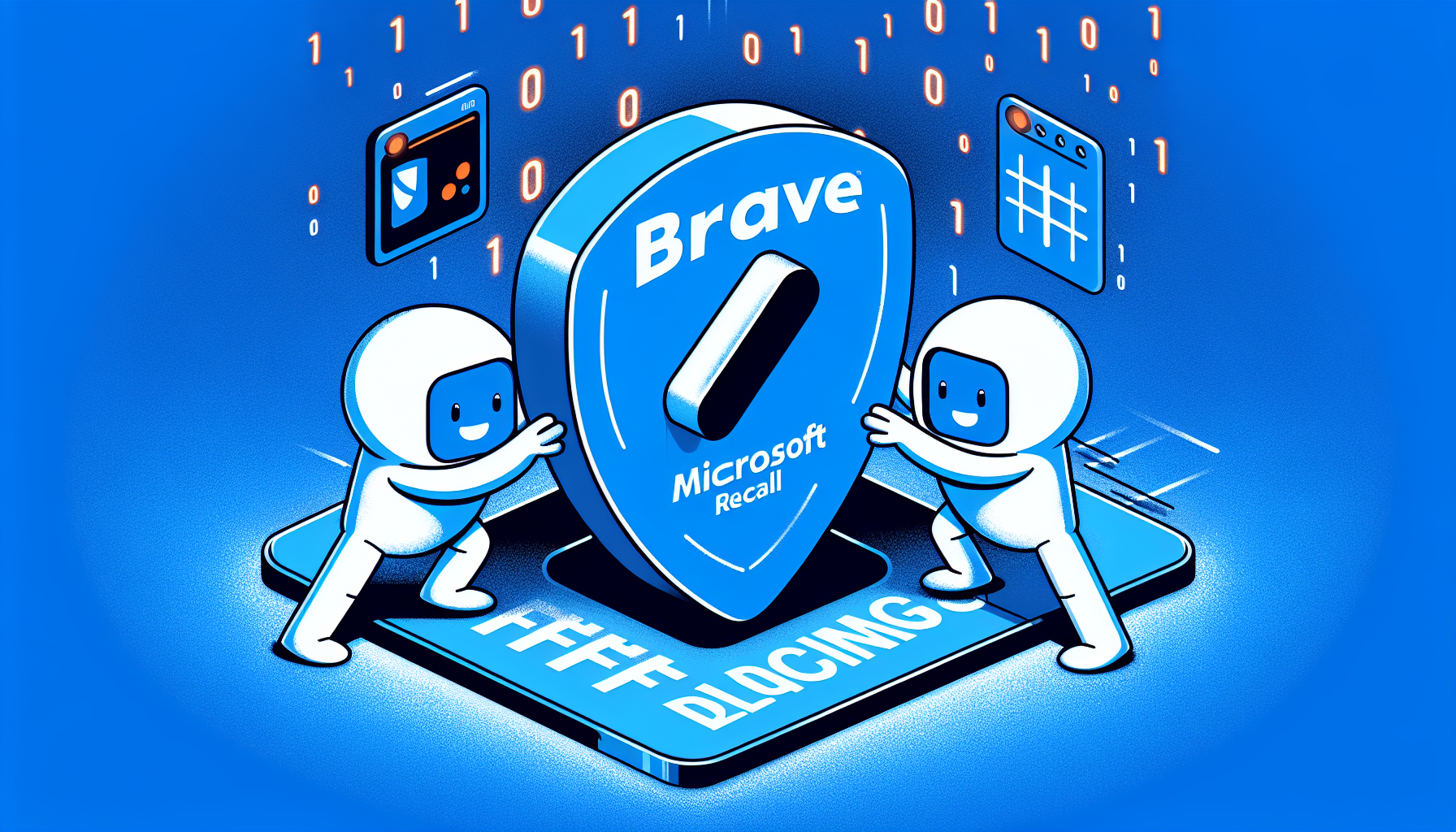
Brave and AdGuard Block Microsoft Recall: A Privacy-First Approach
Understanding Microsoft Recall
In May 2024, Microsoft launched a new feature in Windows 11 known as Recall, an AI-driven tool created to boost productivity by taking screenshots of everything displayed on a user’s screen. This encompasses messages from applications such as WhatsApp and Signal, web pages, documents, and much more. While the feature is intended to assist users in quickly retrieving previous content, it has sparked considerable privacy apprehensions.
Privacy Concerns with Microsoft Recall
The main concern surrounding Microsoft Recall is its ability to potentially capture sensitive information. AdGuard, a prominent ad-blocker, underscored the alarming aspect of background screen captures, which might unintentionally record private conversations, online forms with credit card information, or other personal data. Consequently, AdGuard has implemented a default block on Recall, highlighting the necessity of user privacy.
Brave’s Stance on Privacy
The Brave web browser, recognized for its privacy-centric approach, has likewise opted to block Microsoft Recall by default. Brave’s apprehension is that users’ complete browsing history might be recorded and stored in a permanent database, leading to possible misuse, especially in privacy-sensitive contexts. Brave’s choice was partially influenced by the messaging application Signal, which has similarly expressed concerns regarding AI tools like Recall.
Signal’s Influence on Privacy Decisions
Signal, a widely used encrypted messaging app, has encouraged AI developers to more thoroughly consider the privacy ramifications of tools like Recall. This appeal has struck a chord with other privacy-conscious companies, including Brave, which has taken measures to safeguard its users’ data from being unintentionally captured by Recall.
The Productivity vs. Privacy Debate
While Microsoft Recall presents potential productivity advantages by enabling users to swiftly access previously viewed content, the privacy hazards cannot be dismissed. Both Brave and AdGuard allow users the opportunity to reactivate Recall if they choose, yet the default configuration is to block it, reflecting their dedication to protecting user privacy.
Wrap Up
The advent of Microsoft Recall has ignited a significant discussion between fostering productivity and ensuring privacy. Although tools like Recall can provide convenience, the prospective dangers to personal data have prompted privacy-centric firms like Brave and AdGuard to take a stand. Users must evaluate the benefits against the privacy consequences and make informed choices concerning the use of such features.
Q&A
Q1: What is Microsoft Recall?
A1: Microsoft Recall is an AI-driven tool in Windows 11 that captures screenshots of everything on a user’s screen to boost productivity.
Q2: Why are Brave and AdGuard blocking Microsoft Recall?
A2: Both companies are blocking Recall due to privacy concerns, as it could capture sensitive information like private conversations and credit card details.
Q3: Can users re-enable Microsoft Recall if they choose?
A3: Yes, both Brave and AdGuard provide options that allow users to re-enable Recall if they desire.
Q4: What inspired Brave’s decision to block Recall?
A4: Brave’s decision was partly inspired by Signal, which has also expressed concerns regarding the privacy implications of AI tools like Recall.
Q5: What are the potential benefits of Microsoft Recall?
A5: Recall can enhance productivity by allowing users to quickly retrieve previously viewed content on their screens.
Q6: How does Signal view AI tools like Recall?
A6: Signal has urged AI developers to thoughtfully consider the privacy implications of such tools, stressing the importance of responsible development.